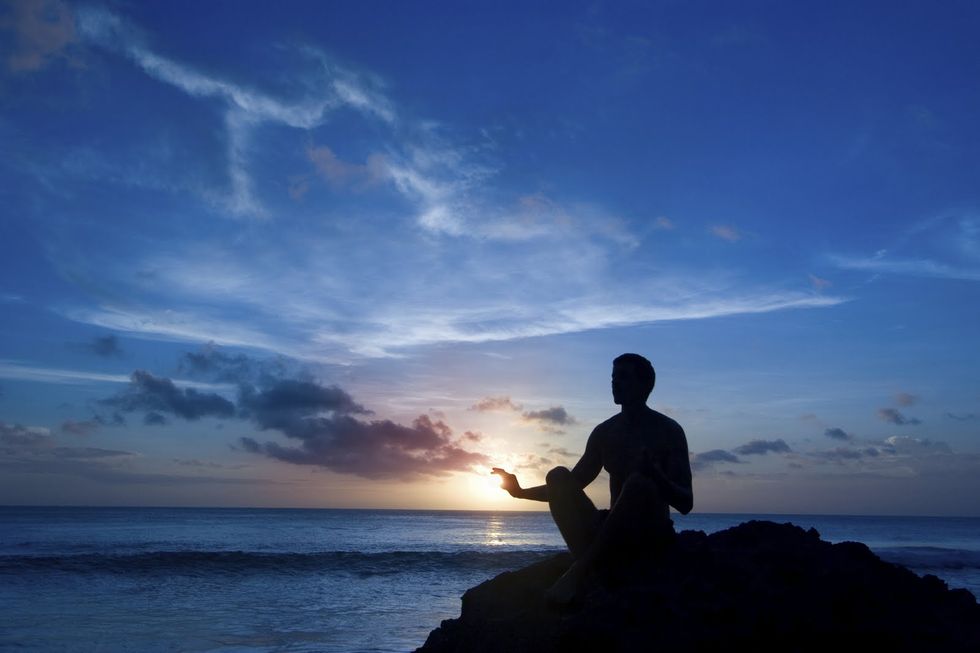During an individual’s college experience, it’s not uncommon for a student to endure stress, pressure, and anxiety on a daily basis. A college student’s days are filled with classes, exams, homework, and working to make ends meet. Keeping a balance however isn’t always easy. Often times, students turn to drugs as a coping mechanism, which internally leads to substance abuse. Many college students don’t understand that drugs are not the only way to manage stress, as there are many techniques that can be used to conquer their anxiety. This article is going to discuss how mindfulness and meditation practices can be implemented into a college student’s routine.
Coming from an individual who has depression and anxiety, I myself have found that the practice of meditation, yoga, and deep breathing to be incredibly helpful techniques that can used as a coping mechanism for stress. I have also found that these skills are healthier than the typical coping mechanisms used by college students, which tends to be alcohol and marijuana. While both drugs may help relieve one’s stress and help an individual feel good in the moment, these are only short term effects that will eventually wear off, causing one to become dependent or even adducted to drugs and alcohol. Is it really worth the 5-hour hangover the next morning? How about the DUI you got last night from drinking and driving as a result of stress? Don’t you wish you didn’t turn to drugs and chose to be mindful and practice meditation instead? I did, as I was handcuffed and placed into a holding cell for twelve hours. I really regretted turning to alcohol on drugs when I left the jail and was handed a piece of paper that told me that I was being charged with a DUI. Getting arrested and going to jail was by far the worst night of my life, as I was a working college student with life goals, who never imagined herself in such a situation. Getting a DUI taught me that turning to drugs and alcohol as a way to cope with my stress and anxiety is the farthest thing from worth it. I could have cost someone their life, but I am blessed to say that I didn’t. It did, however, cost me $5000, and that is why taking the steps to be mindful and medicate will not only save you, but it may save another life.
The best aspect about becoming mindful is that it is quite simple. Being mindful is about focusing on the present moment, as you refrain from allowing yourself to focus on the past, or even think about the future. We live in a society in which we turn to drugs and alcohol in order to cure our internal issues, however we were born with bodies and tools that allow us to cure issues through movement and meditation. This article is going to further discuss how holistic methods such as yoga and acupuncture can help improve one’s quality of life.
Yoga is one of my favorite things to do, as I always find that it relaxes me deeply. Yoga is a combination of deep breathing and body poses that help you transform into a peaceful individual. Yoga provides physical and emotional balance, as it allows you to be mindful and focus on yourself and the present moment. After a session of yoga, the brain relaxes, the heart rhythm slows, the breathing deepens, which helps in overall improving your physical and emotional stability. In addition, different yoga practices and techniques can help with different things, such as yoga for insomnia and relaxation, or yoga for stress and anxiety. Choosing a comfortable and soothing place such as a park or the beach is another way to make the yoga session more comfortable. From personal experience, it is safe to say that yoga has definitely helped me with my stress and anxiety, as all we need to feel better are simple movements of the body.
Although I have never tried acupuncture myself, I scheduled a session within the next month, and I am so eager to see how it will help me with my stress. Acupuncture has been used as a healing mechanism for thousands of years, as an individual presses needles into specific pressure points in your body to help relieve stress. The needles are then removed after 5-30 minutes, and the individual usually feels much more relaxed. Practicing acupuncture can also help with more serious issues, such as depression and addiction, as the relaxation can help lessen the severity of withdrawal symptoms. This is a great technique for individuals who are looking to ways to enhance their well being, quality of life, and healing processes.
The journey to recovery is never an easy one, however it takes a simple three deep breaths and a positive mindset to feel better. Implementing holistic practices into one’s daily life is simple, and the results are worth it. The most important aspect is remembering to focus on yourself, and what is going on in the present moment around you. Let your worries fade away with simple steps and techniques that can change your life.




















